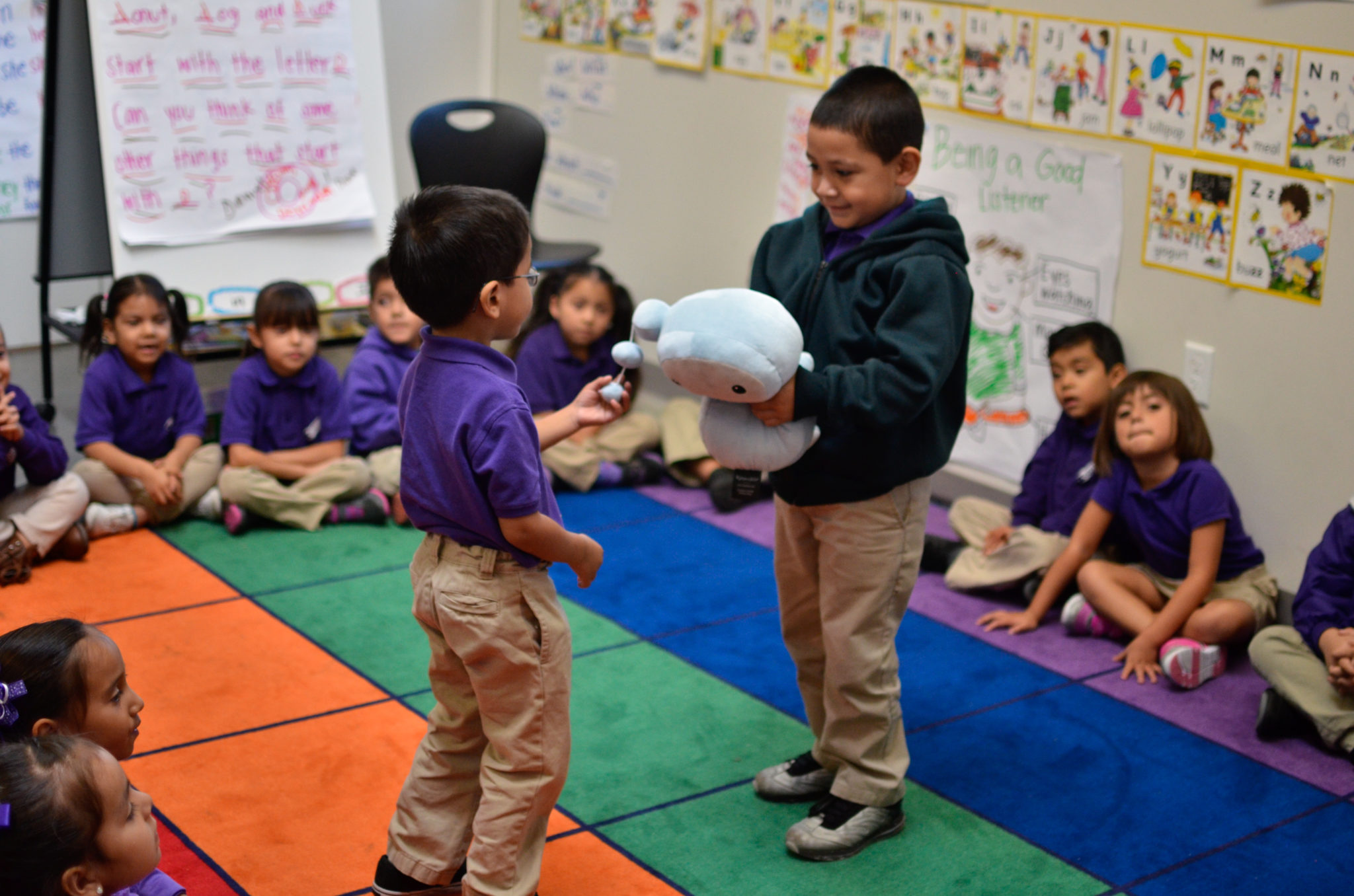
Academics Mean Nothing (Without Culture)
by LaToya Fernandez, Teacher, Discovery Prep
Excellent academics – strong reading comprehension, high algebra test scores – are great, but they aren’t enough. What does our education give us if it doesn’t give us the cultural understanding of how to use our knowledge for good? How to coexist peacefully and productively with others? To give our Rocketeers the most well-rounded and quality education they deserve, teaching and celebrating culture is equally essential. We often perceive culture and academics as two separate entities with different purposes when really, these two inseparable ideals compliment and build off each other. To address the lack of culture in the classroom, educators are working ceaselessly to integrate cultural lessons effectively and in alignment with academic objectives.

Rocketship teachers travel to Los Angeles for an eye-opening lesson on the history of prejudice and how to teach tolerance.
I have searched high and low to figure out how to not only achieve this in my classroom, but within the entire Rocketship network. In our commitment to enrichment, many schools have integrated student ethnic culture and history into programs like Mexican Mariachi band, Hawaiian dancing and multi-cultural celebrations. As I continued to look for even more ways to teach culture, I stumbled upon the key that would open the diversity door for our teachers, students and families.
The Museum of Tolerance in Beverly Hills, California highlights the history of diversity and cultural relations around the world, demonstrating how disregard for diversity and misunderstandings about culture caused some of the most tragic disasters in history. Not only does the museum host a plethora of interactive exhibits, but they also have free, grant-funded professional development opportunities for educators, corporate workers and police departments. I had the pleasure and opportunity to attend three of these invigorating conferences, including an exclusive diversity and culture workshop for Rocketship teachers.
Thirty-nine educators, including everyone from enrichment coordinators to teachers, paraprofessionals and tutors, gathered at San Jose International Airport, unaware of the mind-blowing journey to come. Within the first few hours of the workshop, we were forced to face and break down our own walls of bias and prejudice. For some, it was making assumptions about families. For others, it was about judging entire groups of people based on demographic, economic status and ability to speak English. In our initial diversity discussions, we uncovered the gateway misconception that diversity and culture are directly linked to race. We began to realize that being culturally sensitive and aware does not just include talking about race in the classroom, but addressing, respecting and appreciating all the qualities and differences that make up our community.
As we toured the museum, engaged in rich dialogue and created solutions on how to be more versed on the matter, I began to see a shift in thought and language. Educators began to address our students and community as ours rather than “those kids” or “these people”. We were moved by the words of Dr. Terrence Roberts, one of the Little Rock Nine (one of the first black students to integrate into an all-white school in Arkansas). As he spoke, we resolved to carry out his advice: “make change by being the example for your students.”

Listening to Dr. Terrence Roberts, one of the Little Rock Nine (one of the first black students to integrate into an all-white school in Arkansas).
In the same breath, a Holocaust survivor who shared her experience at Auschwitz concentration camp during World War Two told us, “I do not blame all Germans for what happened.” That was powerful. These two individuals who struggled through some of the world’s most challenging injustices and inequities were still inspiring education, peace, leadership and brotherhood.
As we packed up to head back to San Jose, there was a sense of clarity and an urge to ignite social change. Professional developments around diversity and culture will be happening on many campuses this school year, and we will continue to have the conversations that challenge our thinking. My request echoes that of Chaim Ginott, a Holocaust concentration camp survivor: “Help your students become human. Your efforts must never produce learned monsters, skilled psychopaths, educated Eichmanns. Reading, writing and arithmetic are important only if they serve to make our children more human.”
For more information on the Museum of Tolerance and to get involved with their free professional development programs, please visit museumoftolerance.com.
LaToya started her career at Rocketship as a member of the support staff team. She transitioned to an enrichment coordinator then a Rocketship tutor (ILS) before becoming a fifth grade humanities teacher at Discovery Prep. LaToya graduated from Newbury College in Boston where she studied Media writing and English.
Published on July 1, 2015
Read more stories about: Teacher Experience.


